Featuring classical architectural styles and New Deal-era murals, these beautiful post offices prove that sending a letter doesn’t have to be boring

12 of the Most Beautiful Post Offices in the United States


Frontenac, New York
During the Gilded Age, affluent Manhattanites would make the long train trip north to summer in their elegant “cottages” (don’t be fooled—they were actual mansions) in the Thousand Islands region of New York. As the name suggests, there are numerous small islands on the St. Lawrence River and Eastern Lake Ontario, primarily reachable only by boat (at least until the river freezes over). One of these islands, Round Island, was once home to the luxurious New Frontenac Hotel, which counted J.D. Rockefeller and the Duke of Newcastle among its well-heeled guests. And while the hotel burned down in 1911, its quaint, boat-accessible post office still remains. Though it’s not known precisely when the Frontenac Post Office officially opened, it was sometime between 1878 and 1890.

Charleston, South Carolina
Formerly the site of the gallows for public executions during British rule, the U.S. Post Office and Courthouse in Charleston is located in an area of the city known as the “Four Corners of Law.” Designed by Irish-born architect John Henry Devereux in 1887, the Second Renaissance Revival building wasn’t completed until 1896, for a cost of $500,000.
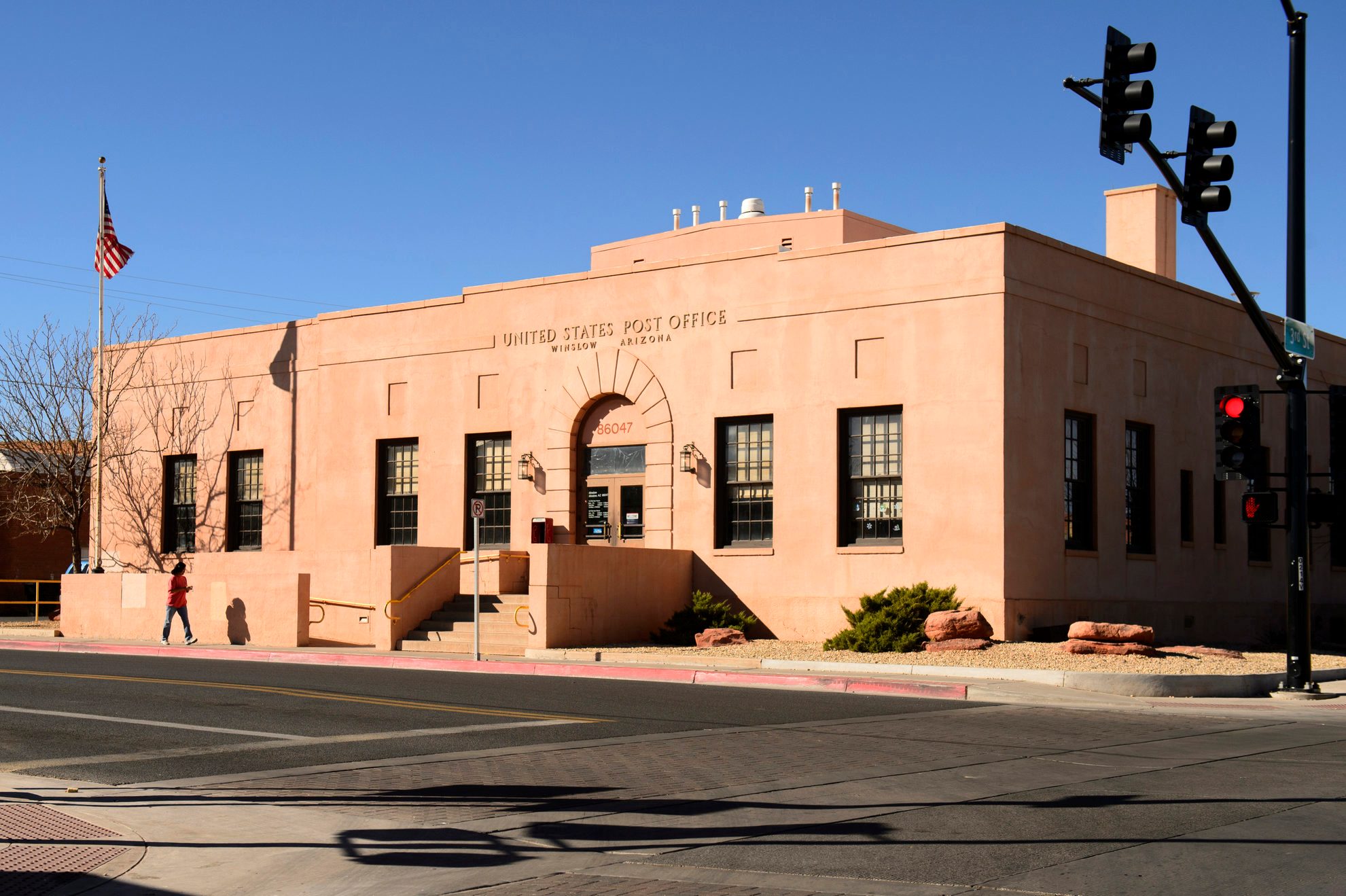
Winslow, Arizona
Thanks to the band the Eagles, standing on the corner in Winslow, Arizona, is a tourist activity. And there’s a specific corner in town that’s really worth a visit because it’s home to the local post office. But it’s not just any post office: This stucco, Federalist Moderne building was architect Louis A. Simon’s attempt at combining regional architectural styles with some Classical formalism. Completed in 1935, this post office marked the end of the construction of Winslow’s Commercial Historic District.
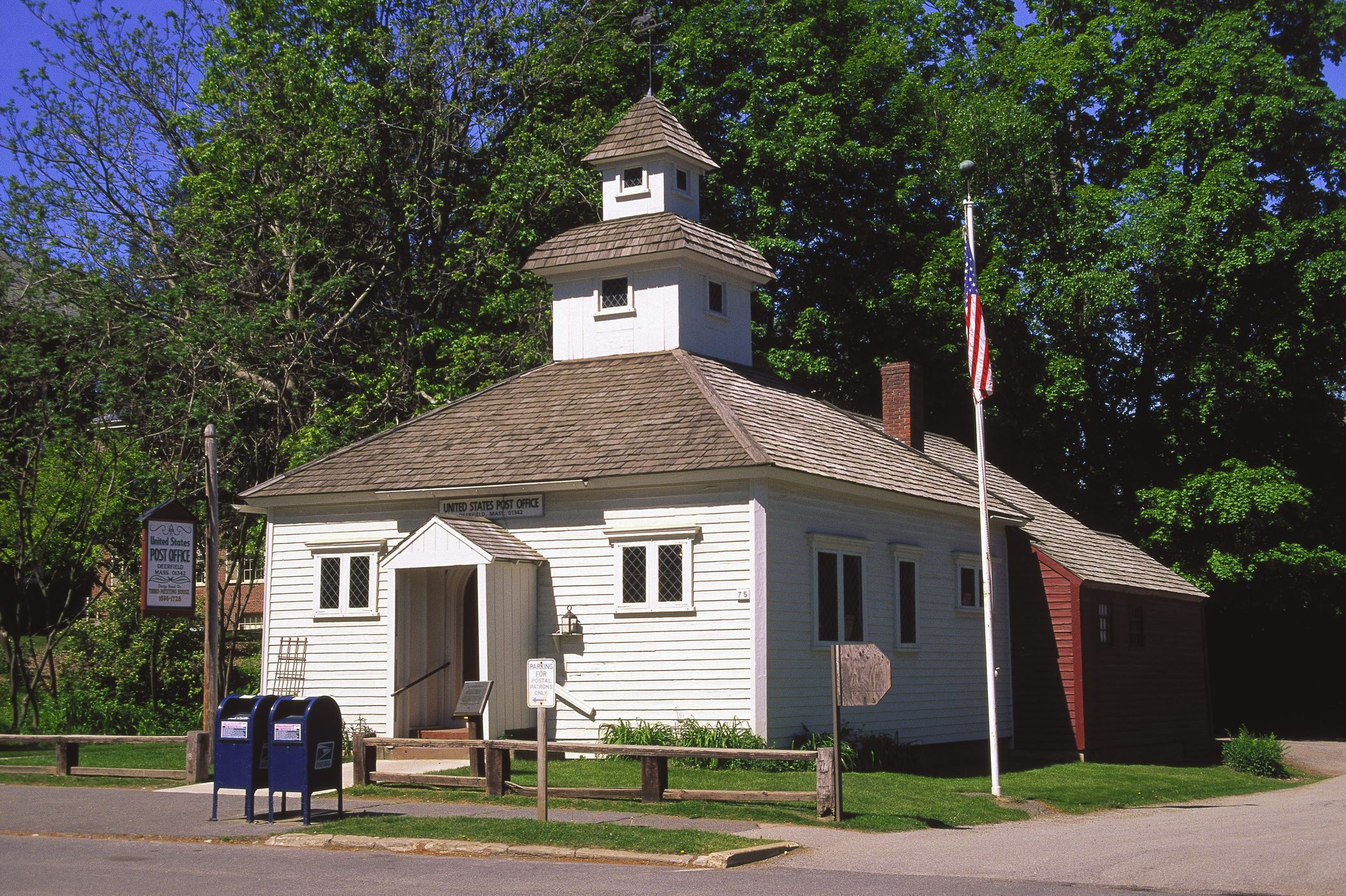
Deerfield, Massachusetts
This historic Massachusetts post office was built in 1912 in the Colonial Revival style. But it would be another 40 years before Henry N. Flynt remodeled it to resemble the town’s 17th-century meeting house. Since then, it has been one of the most famous buildings in Historic Deerfield, and it remains a functioning post office today.

St. Petersburg, Florida
When it was dedicated in 1917, the St. Petersburg post office was the country’s first open-air post office, and it has remained in continuous operation ever since. With assistance from architect George W. Stewart—the city’s postmaster—Roy Hanna designed the Mediterranean Revival-style building, which was inspired by a 15th-century hospital in Florence, Italy.
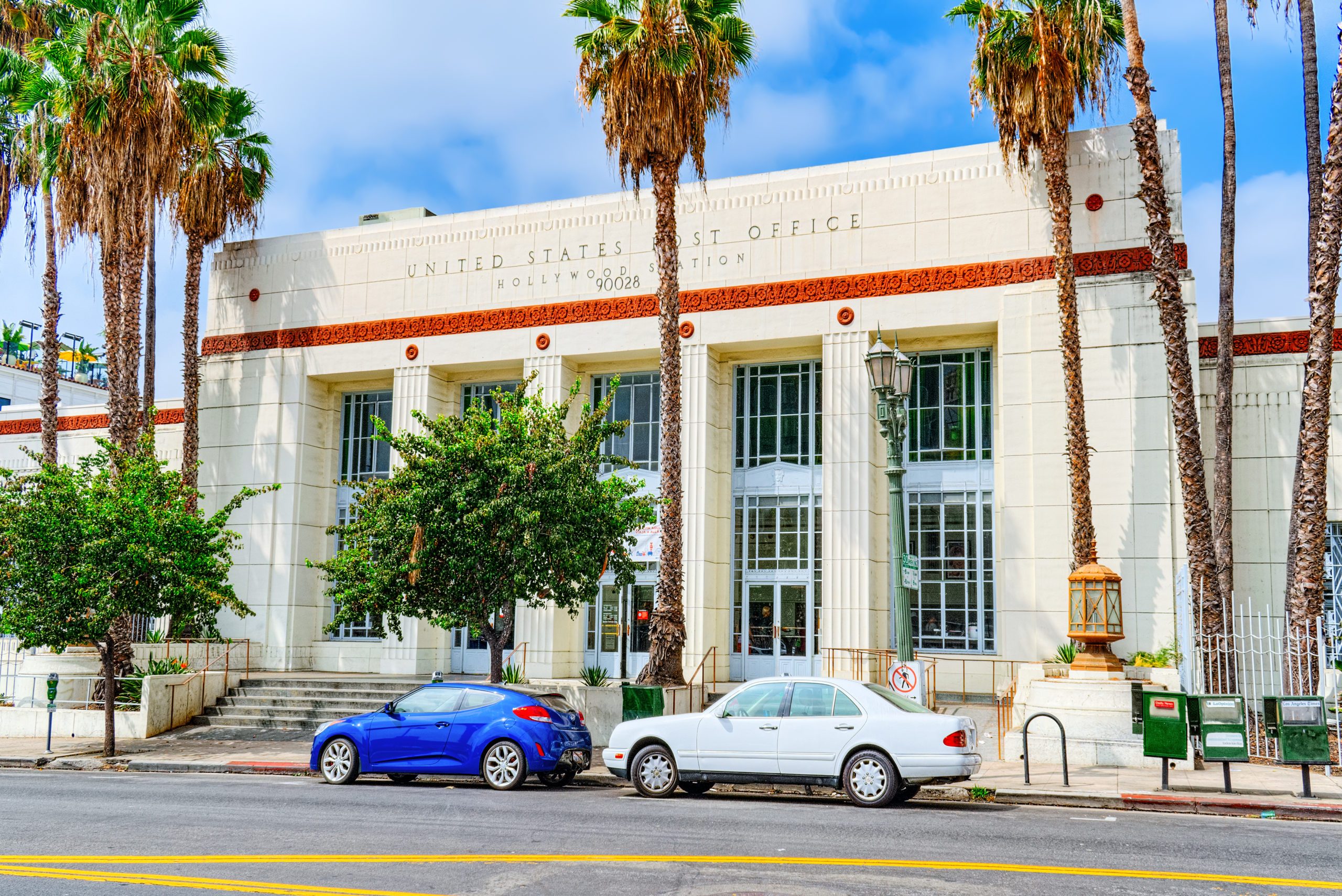
Hollywood, California
Out of all the beautiful post offices in America, the one at Hollywood Station in Los Angeles may be the most glamorous. The National Register of Historic Places considers it “an almost archetypal example” of the Starved Classicism architectural style, making the post office stand out among the Art Deco buildings in L.A. by being classical with a modernist twist. Renowned Art Deco architect Claud Beelman—then a partner at Curlett + Beelman—designed the building, which opened in 1937 and was built using funds from the Treasury Department as part of the New Deal.
Hollywood Station is also known for being a “dead letter repository” for notes sent to Hollywood royalty like Judy Garland and Clark Gable.
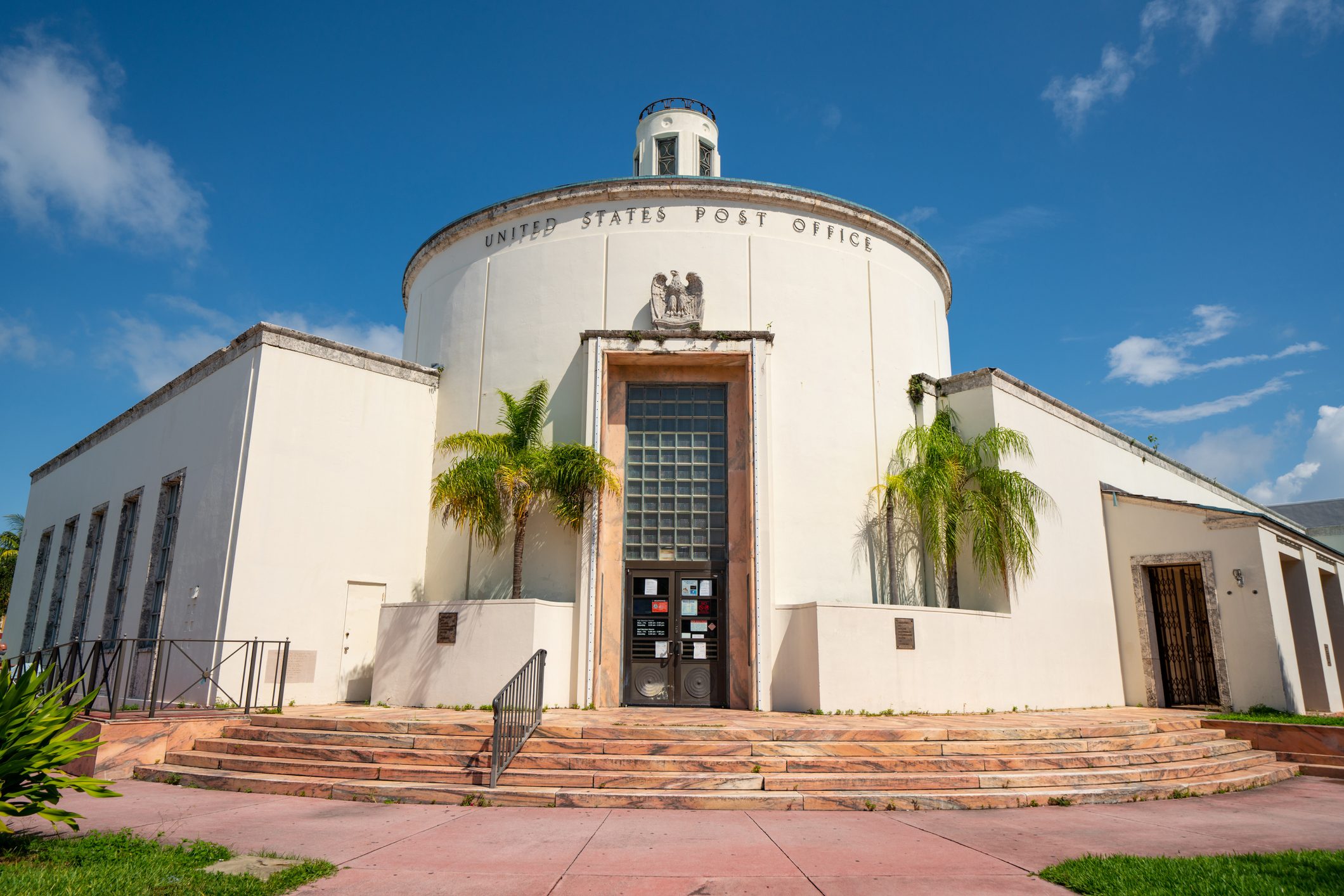
Miami Beach, Florida
The historic Miami Beach Post Office is one of the most iconic buildings in the city, featuring a combination of Art Deco and Depression Moderne architecture that’s sometimes referred to as “Deco Federal Style.” Designed by architect Howard L. Cheney and built by A.F. Blair, the post office was constructed with Treasury Department funds as part of the New Deal. The inside of the post office is equally impressive, featuring three murals depicting “Episodes from the History of Florida,” painted in 1940 by Works Progress Administration artist Charles Russell Hardman.
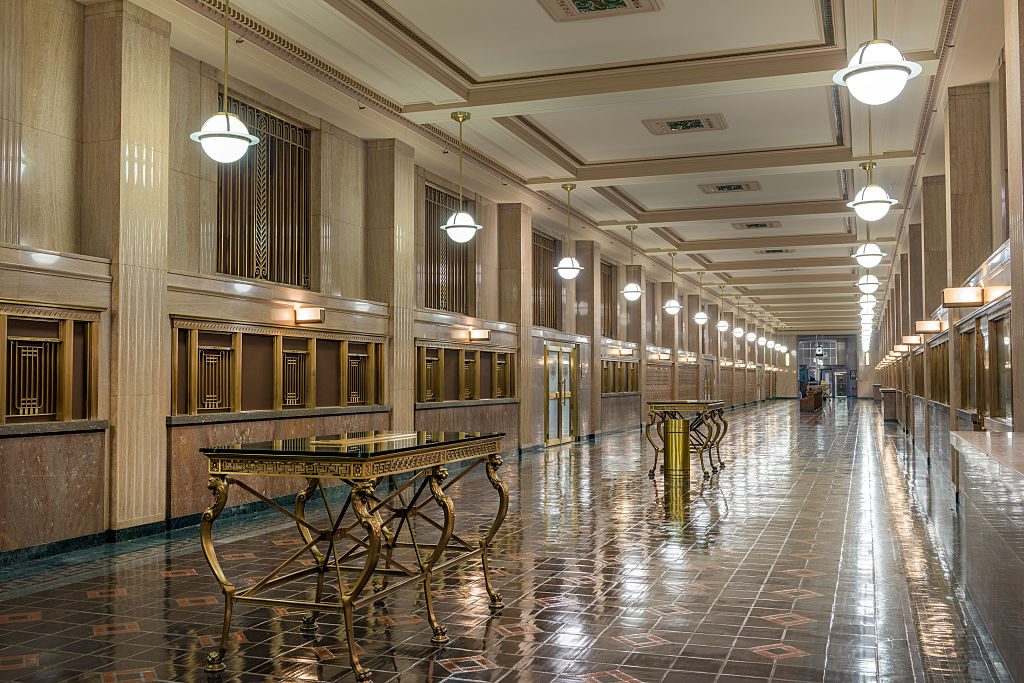
Cincinnati, Ohio
Located in historic Fountain Square in downtown Cincinnati, the Art Moderne–style Potter Stewart United States Post Office and Courthouse replaced the city’s previous federal building. Thanks to Cincinnati’s growing immigrant population and the government services they required, the city outgrew its original structure, which was completed in 1885. Its replacement—designed by architect Louis A. Simon and completed in 1939—was built using structural steel and reinforced concrete, with the exterior walls covered in limestone. Around it are libraries, which are equally stunning structures.

Little Rock, Arkansas
The population of Little Rock grew significantly at the beginning of the Great Depression, as families from hard-hit rural areas moved into the city. A much larger post office was required to meet the needs of the expanding community, and the city secured funding that was part of the New Deal. Supervising architect James A. Wetmore oversaw the design of the five-story limestone Classical Revival–style federal building, which opened in 1932.
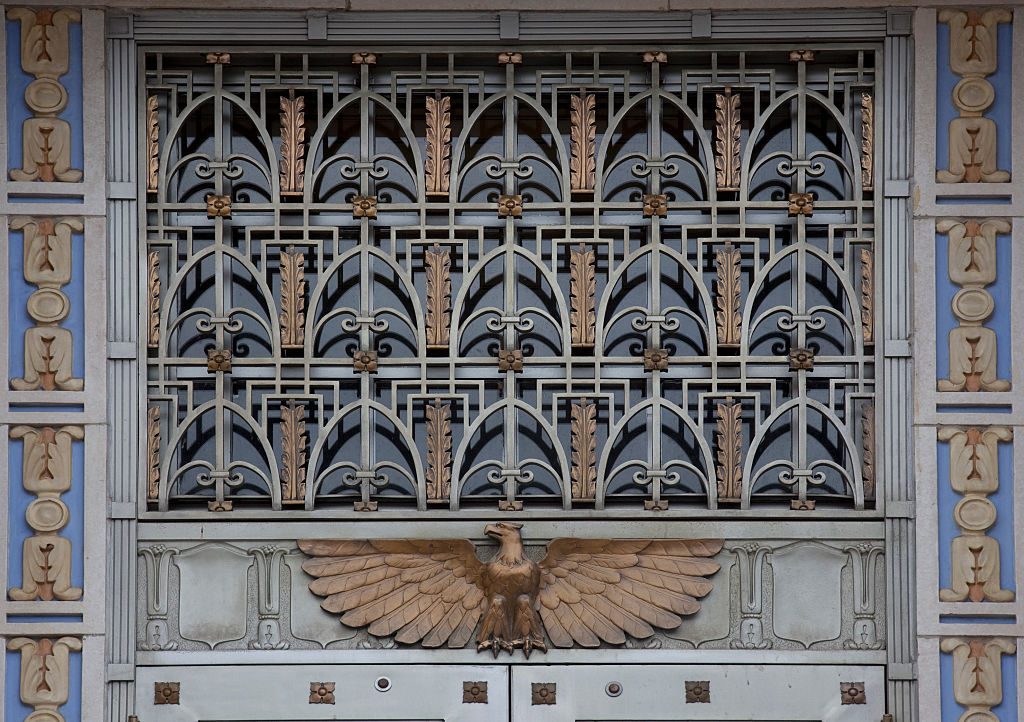
Camden, New Jersey
Construction on the U.S. Post Office and Courthouse in Camden, New Jersey, began in 1931 and was completed a year later. Louis A. Simon, an MIT-trained architect, designed the artistic building, which is an example of Neoclassical architecture through a Modernist lens. The post office also has some Spanish Revival elements, including the original Mission tile roof and the interior’s multicolored quarry tile wainscot and floor tile treatment. On top of that, there are Art Deco features in the interior, like the ornate entrance doors, transom windows and metal grillwork.

Texarkana, Texas
Not only is the Texarkana post office an architectural stunner, combining elements of both Beaux-Arts and Art Deco design, but it’s also the only federal building in the country to straddle two different states (Texas and Arkansas). Two architectural firms—Witt, Seibert & Halsey of Texarkana, in association with Perkins, Chatten & Hammond of Chicago—collaborated on the building’s design. Though it was built during the Great Depression and opened in 1933, it predates the New Deal, instead receiving funding allocated under the 1926 Public Buildings Act.
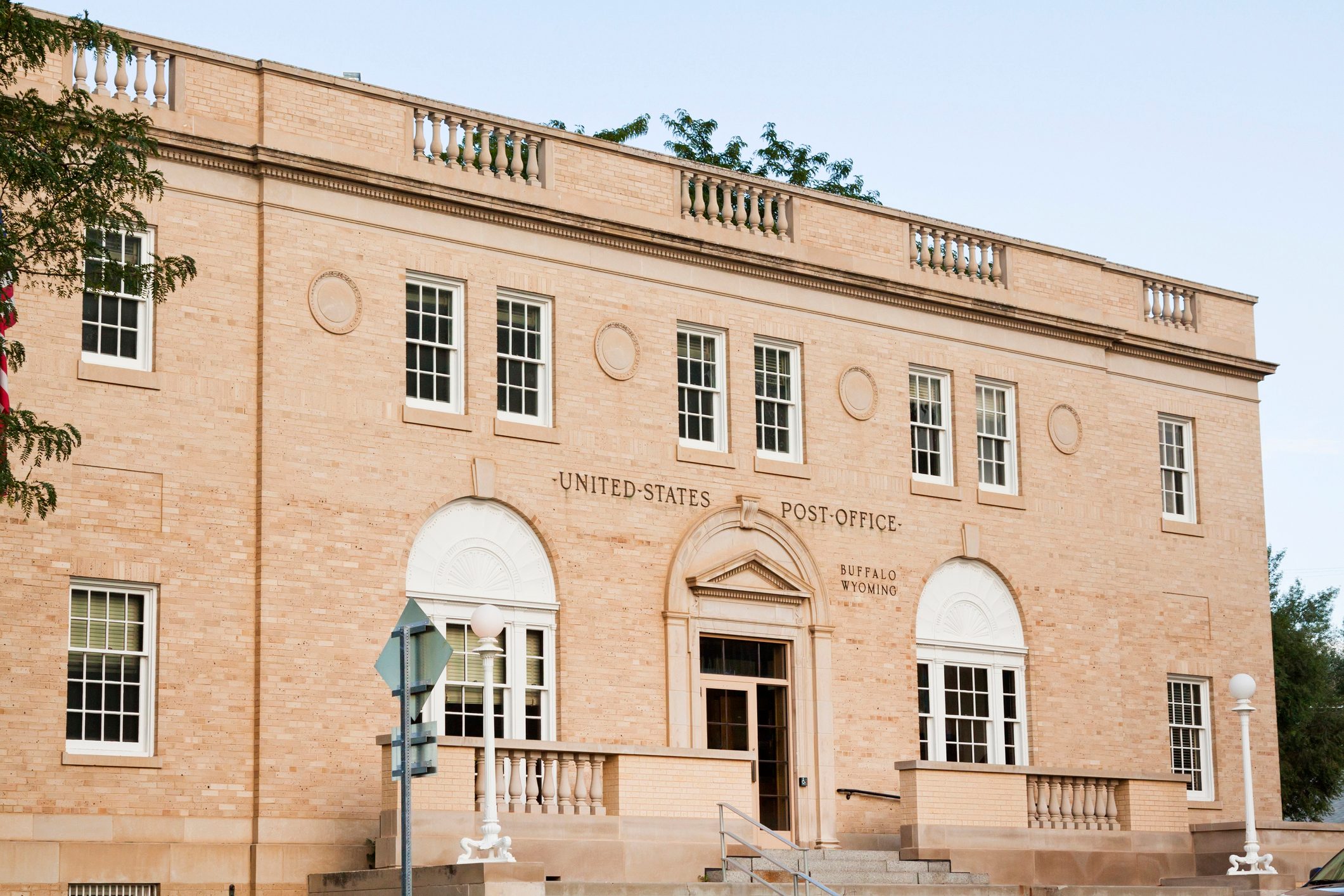
Buffalo, Wyoming
It took more than a decade of campaigning by local citizens and the Wyoming Congressional delegation to secure the funds and approval to create a federal post office in the city of Buffalo. Though the specific architect of the Buffalo Main Post Office is not known, James A. Wetmore, a supervising architect from the Treasury Department, oversaw the design. What makes this post office—which was completed in 1936—so unique is its representation of the transition from Beaux-Arts Classicism to “efficient” Modernist designs of the 1930s. This is best seen in the flat, limestone Modernist facade combined with the ornate detailing of the Beaux-Arts tradition.
Why trust us
At Reader’s Digest, we’re committed to producing high-quality content by writers with expertise and experience in their field in consultation with relevant, qualified experts. We rely on reputable primary sources, including government and professional organizations and academic institutions as well as our writers’ personal experiences where appropriate. We verify all facts and data, back them with credible sourcing and revisit them over time to ensure they remain accurate and up to date. Read more about our team, our contributors and our editorial policies.
Sources:
- U.S. General Services Administration: “U.S. Post Office and Courthouse, Charleston, South Carolina”
- National Park Service: “Winslow Commercial Historic District”
- Herald-Tribune: “No. 73: Open-Air Post Office, 1917, St. Petersburg”
- TESSA Digital Collections of the Los Angeles Public Library: “Hollywood Post Office”
- Auburn University Digital Collections: “Miami Beach Post Office”
- Library of Congress: “Courtroom. Potter Stewart U.S. Post Office and Courthouse, Cincinnati, Ohio”
- U.S. General Services Administration: “Richard Sheppard Arnold U.S. Post Office and Courthouse, Little Rock, AR”
- U.S. General Services Administration: “U.S. Post Office and Courthouse, Camden, NJ”
- U.S. General Services Administration: “U.S. Post Office and Courthouse, Texarkana, AR”




















